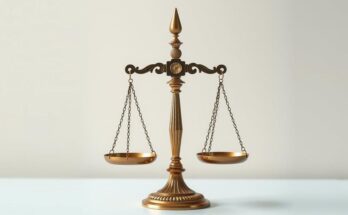Human rights experts in Washington are sharply divided over the implications of the U.S. withdrawal from the United Nations Human Rights Council (UNHRC) for North Korea’s dire human rights conditions. President Donald Trump’s recent executive order echoes his previous disapproval, stating that the UNHRC has enabled abusers to evade scrutiny, which casts doubt over its effectiveness. This shift in stance was coincided with a meeting with Israeli Prime Minister Benjamin Netanyahu, showcasing the political timing of the decision.
Critics of the withdrawal, including Robert King, the former U.S. envoy for North Korean human rights, stress that this move could hinder international efforts aimed at addressing human rights violations in North Korea. He believes the council has played a crucial role in spotlighting these abuses, indicating the U.S.’s absence as detrimental.
Roberta Cohen, a former official in the human rights realm, also voices concern, labelling the withdrawal as “short-sighted.” Cohen argues for U.S. participation in the council to instigate reforms and bolster support for initiatives aimed at improving human rights conditions in North Korea, noting the council’s past work, such as the Commission of Inquiry on Human Rights in North Korea (COI).
Conversely, some experts believe the UNHRC lacks the genuine influence necessary to effect change in North Korea. Suzanne Scholte, a North Korean human rights activist, criticises the council for legitimising dictatorial regimes instead of actively addressing human rights abuses, especially concerning North Korean refugees facing threats upon their return from China.
David Maxwell, from the Center for Asia Pacific Strategy, emphasises the need to differentiate between Trump’s strategies towards the UN and the genuine plight of North Korean citizens. He expresses that the UN’s coercion by countries like China and Iran hampers progress in addressing real human rights crises.
Meanwhile, Andrew Yeo from the Brookings Institution assures that despite the U.S. stepping back from the UNHRC, alternate platforms like the State Department’s reports still exist to highlight human rights concerns in North Korea. Following Biden’s return to the council after his inauguration, the administration chose not to pursue a second term amidst the turbulent backdrop of the ongoing Israel-Hamas conflict.
Each March, the U.S. State Department presents its annual Human Rights Reports, detailing violations occurring globally. Last year, the report documented alarming accounts of unlawful killings, enforced disappearances, and acts of torture in North Korea, underscoring the ongoing human rights crisis there.
The U.S. withdrawal from the UN Human Rights Council has drawn mixed reactions from experts. Some warn it could harm efforts to improve North Korea’s human rights abuses, while others doubt the council’s effectiveness. Critics of the council argue it legitimises oppressive regimes, while alternatives like the State Department’s reports on human rights continue to play a role in addressing these issues.
The U.S. withdrawal from the UNHRC has provoked a fierce debate among experts regarding its potential effects on human rights conditions in North Korea. Some argue it will undermine international efforts to address these grave violations, while others are sceptical about the council’s effectiveness in enacting real change. As the situation evolves, the needs of North Korean citizens remain a focal point of concern amid shifting diplomatic strategies.
Original Source: www.voanews.com



